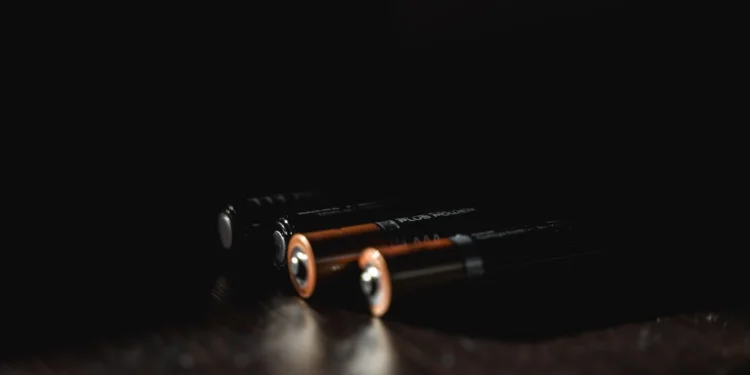Who would have thought that the same material used in clothing could hold the key to safer and more efficient lithium-metal batteries? According to MSN, in a groundbreaking discovery, researchers at King Abdullah University of Science and Technology (KAUST) in Saudi Arabia have found a way to integrate nylon into battery technology, significantly improving performance, lifespan, and safety. This innovative approach could revolutionize energy storage solutions while making batteries more cost-effective and accessible for widespread use.
How Nylon Enhances Lithium-Metal Batteries
To optimize lithium-metal battery performance, researchers typically add stabilizing compounds to the battery interface to reduce inefficiencies and prevent degradation. However, most of these additives require harsh solvents, which can introduce safety risks and production challenges.
The KAUST team discovered that nylon, a widely available polymer, can be dissolved in a mild lithium solution, eliminating the need for aggressive chemicals. This simpler and safer method improves battery stability while maintaining high performance.
The Key Benefits of Nylon in Lithium-Metal Batteries:
- Enhanced efficiency – Nylon improves ion transport and minimizes energy loss.
- Longer battery lifespan – Reduces degradation and parasitic reactions.
- Improved safety – Replaces hazardous materials traditionally used in batteries.
- Lower production costs – Uses an inexpensive, widely available polymer.
According to Dr. Zhiming Zhao, postdoctoral scientist at KAUST, the discovery stemmed from analyzing the solvation structure and molecular interactions within lithium-metal batteries.
“Polymers have always been difficult to dissolve in common battery electrolytes. We did an intensive study of the chemical properties and modified the solvation structure and interactions.”
By incorporating nylon-based electrolyte additives, KAUST researchers achieved higher-performing lithium-metal batteries that are also safer and more affordable.
Lithium-Ion vs. Lithium-Metal Batteries: What’s the Difference?
Lithium batteries are widely used in consumer electronics, electric vehicles (EVs), and aerospace technology due to their high energy density and lightweight design. However, there are two main types of lithium batteries:
- Lithium-ion batteries (Li-ion): Commonly found in smartphones, laptops, and electric cars.
- Lithium-metal batteries (Li-metal): Offer higher energy density and are used in robotics, advanced transportation, and aerospace applications.
While lithium-metal batteries outperform lithium-ion batteries in energy capacity, they have historically struggled with safety issues and limited lifespan due to unstable chemical reactions and unwanted parasitic reactions.
Why Lithium-Metal Batteries Have Safety Issues
One of the major concerns in lithium-metal batteries is the formation of dendrites, needle-like lithium structures that can pierce battery separators, leading to short circuits and potential fires. The addition of nylon helps stabilize the electrolyte interface, reducing dendrite formation and significantly improving battery safety and longevity.
A Step Toward Safer and More Affordable Energy Storage
This discovery could mark a turning point in battery technology, making high-energy-density lithium-metal batteries safer and more cost-effective. Professor Husam Alshareef, Chair of the KAUST Center of Excellence for Renewable Energy and Storage Technologies (CREST), emphasized the potential impact of the breakthrough:
“My research team is dedicated to building renewable energy and storage solutions such as higher energy density and safer batteries to accelerate decarbonization adoption in the Kingdom. This was a discovery that promises cheaper and safer additives and demonstrates the benefits of basic scientific research.”
By using a familiar and cost-effective material like nylon, KAUST researchers have paved the way for more widespread adoption of lithium-metal batteries.
This innovation holds the potential to benefit a wide range of industries, including:
- Consumer electronics – Longer battery life for smartphones, laptops, and wearable devices.
- Electric vehicles (EVs) – Higher energy density for extended driving ranges.
- Renewable energy storage – More reliable grid storage solutions for solar and wind energy.
Conclusion
The integration of nylon into lithium-metal batteries marks a major advancement in energy storage technology. By offering higher efficiency, longer lifespans, and improved safety, this breakthrough could pave the way for the next generation of high-performance batteries. As industries continue to demand more powerful and sustainable energy storage solutions, discoveries like this bring us closer to a future where batteries are safer, cheaper, and more widely available for everyday applications.
Want to stay updated on the battery industry? Check out the latest news on BatteriesDaily!











